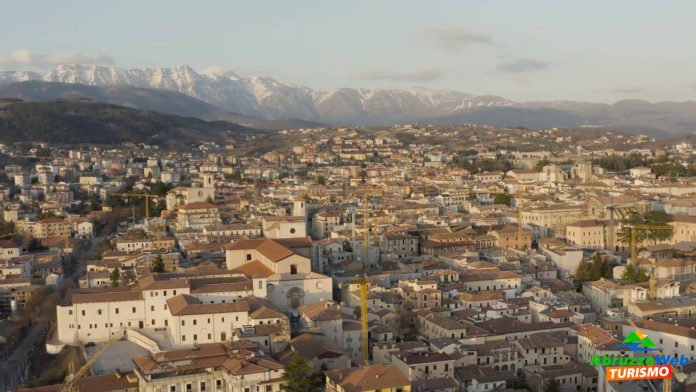by InTrieste
Amidst the remnants of tragedy and the echoes of resilience, L’Aquila emerges as the beacon of cultural resurgence, crowned as the Italian Capital of Culture for the year 2026. Ravaged by a catastrophic earthquake nearly 15 years ago, the city, nestled in the heart of Abruzzo, stood as a testament to tenacity as it triumphed over fierce competition to claim this esteemed honor.
Following a rigorous selection process, spearheaded by Italian culture minister Gennaro Sangiuliano, L’Aquila’s victory was announced with reverberating applause. The city, capital of the Abruzzo region, outshone its counterparts, including Agnone, Alba, Gaeta, and others, to clinch the coveted title.
Marco Marsilio, the recently re-elected governor of Abruzzo, exuded pride as he celebrated L’Aquila’s triumph on social media, lauding the collective belief that propelled them to success. His sentiments were echoed by L’Aquila’s esteemed mayor, Pierluigi Biondi, whose stewardship guided the city towards this crowning achievement.
Notably, both Marsilio and Biondi stand as stalwarts of Giorgia Meloni’s right-wing Fratelli d’Italia party, underscoring the political significance intertwined with this cultural accolade.
The proclamation of L’Aquila as the Capital of Culture for 2026 follows in the footsteps of Pesaro, a coastal gem on the Adriatic, which held the prestigious mantle in 2024. This succession marks a continuum of cultural stewardship, tracing back through Bergamo, Brescia, Cagliari, and other illustrious predecessors who adorned Italy’s cultural tapestry in preceding years.
Yet, the journey of Italian cultural capitals is not devoid of hiatus. Matera’s ascension as the European Capital of Culture in 2019 punctuated the timeline, underscoring a year of transcendental significance. Likewise, Parma’s dual-year reign in 2020, borne out of the exigencies of the pandemic, and Procida’s enchanting tenure in 2022, serve as testaments to the dynamism and adaptability inherent in Italy’s cultural narrative.
As the baton passes from Procida to Agrigento for the forthcoming year, anticipation mounts, weaving a rich tapestry of cultural exploration and celebration across the Italian landscape. In the wake of adversity, L’Aquila’s ascendance stands as a beacon of hope, beckoning forth a renaissance of cultural vitality and resilience.





























